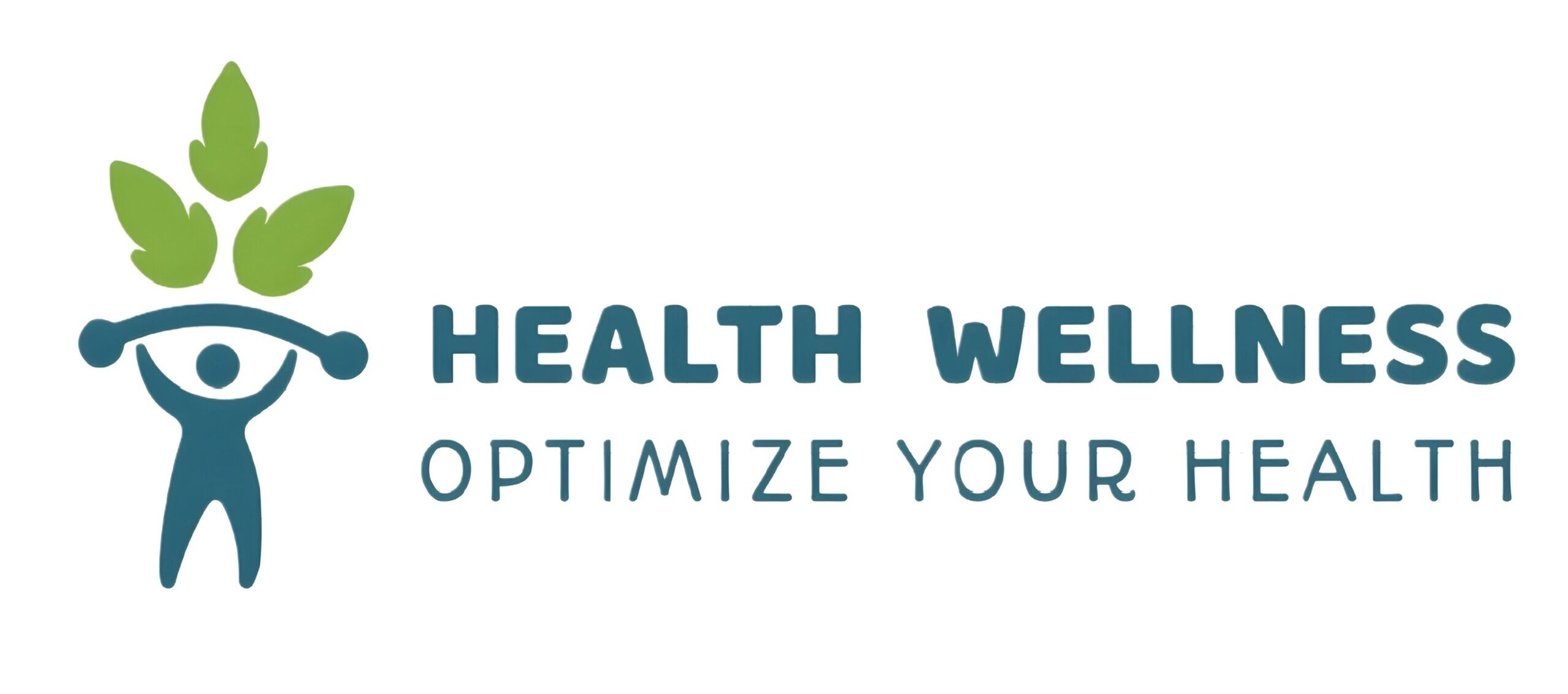Female hormones shape every aspect of our bodies. They control blood sugar, blood pressure, growth, fertility, sex drive, metabolism, and sleep patterns. Women’s bodies go through hormone changes more often throughout life, especially when they experience major milestones like puberty, pregnancy, and menopause.
These powerful chemical messengers create intricate networks in our bodies. Small hormone imbalances can affect our overall health by a lot. Many women notice this through common signs like mood swings, weight fluctuations, and tiredness. This piece explores the workings of women’s hormones, what causes imbalances, and the ways to keep our hormone levels balanced throughout life.

What Are Hormones?
Picture tiny messengers flowing through your bloodstream. They deliver precise instructions to organs and tissues throughout your body. These chemical messengers, called hormones, are powerful molecules that coordinate almost every bodily function with just trace amounts.
Your body uses hormones as its internal communication system. They start in one area, move through the bloodstream, and create effects in other places [1]. Each hormone works like a unique key that fits specific locks – special receptors on cells that receive their message [2]. A hormone triggers specific actions in cells once it finds its matching receptor. The cells then build new proteins or change existing ones [3].
The human body contains more than 50 different hormones [2][3]. Your endocrine system makes and releases these chemical messengers through specialized glands, organs, and tissues. They coordinate vital functions such as:
- Metabolism and energy production
- Growth and development
- Sexual function and reproduction
- Blood sugar regulation
- Fluid and electrolyte balance
- Mood and sleep-wake cycles
- Bone and tissue maintenance
These chemical messengers create big changes with tiny amounts [2]. That’s why even small hormonal shifts can affect your health.
Women’s reproductive health and overall wellbeing depend on several key hormones. Estrogen, which comes mainly from the ovaries, controls ovulation, menstruation, breast development, and bone density [4]. This hormone comes in three forms – estradiol, estriol, and estrone. Estradiol stands out as the most potent and common type in women during their childbearing years [5].
Progesterone helps prepare the uterus for pregnancy. It thickens the endometrium and stops muscle contractions that might reject a fertilized egg [5]. The corpus luteum, a temporary gland that forms after ovulation, releases this hormone during the second half of your menstrual cycle [5].
Testosterone plays vital roles in women’s bodies too, despite its association with men. The ovaries and adrenal glands produce small amounts that help with sex drive, fat distribution, muscle strength, and bone mass [4]. Your body hair patterns and menstrual cycle can change if testosterone levels become unbalanced [6].
Your body needs many other hormones to work properly. Insulin from the pancreas manages blood sugar by turning glucose into energy [4]. Cortisol, known as the stress hormone, controls metabolism, blood pressure, and inflammation responses [4]. Thyroid hormones regulate your body’s metabolism and energy production [4].
The complex interplay of these chemical messengers shows how your body’s systems work together. Hormone receptors are essential – hormones can’t deliver their messages without proper receptors [3]. This system ensures targeted responses in specific tissues instead of affecting the whole body.
The sophistication of this communication network explains why balanced hormones matter so much for women’s health. Learning about these chemical messengers helps us understand how imbalances can lead to various symptoms, from mood swings to physical discomfort.
Hormonal Fluctuations Across a Woman’s Life
A woman’s body goes through remarkable hormonal changes that control everything from physical development to reproductive abilities. These natural fluctuations create distinct phases in our health experience and serve specific biological purposes.
The hormonal story starts at puberty, usually between ages 8-13. Our hypothalamus releases gonadotropin-releasing hormone (GnRH). This release triggers estrogen levels to increase up to 8 times compared to childhood levels. The body responds with breast development, wider hips, and the beginning of menstruation. These changes happen gradually over 2-5 years as the body matures.
The menstrual cycle creates a monthly pattern of hormonal changes. Follicle-stimulating hormone (FSH) rises during the follicular phase and stimulates egg development while estrogen levels steadily increase. Luteinizing hormone (LH) dramatically surges at ovulation—sometimes increasing 5-fold within 24-48 hours—and releases a mature egg. Progesterone levels peak in the cycle’s second half to prepare the uterus for possible pregnancy. These levels drop with estrogen if conception doesn’t happen, which leads to menstruation.
Pregnancy brings dramatic hormonal changes. Human chorionic gonadotropin (hCG) doubles about every 48-72 hours in early pregnancy and supports the corpus luteum until the placenta develops fully. Estrogen production increases up to 1000 times pre-pregnancy levels. Progesterone rises 10-fold to maintain pregnancy and prepare for breastfeeding.
Subtle changes begin in our mid-30s to 40s, signaling perimenopause—the transition toward menopause. This 4-8 year period sees our ovaries become less responsive to FSH. This hormone increases by 4-10 times while estrogen and progesterone levels fluctuate unpredictably. These erratic patterns often cause irregular periods, hot flashes, sleep problems, and mood swings.
Menopause arrives after 12 months without menstruation, typically between ages 45-55. Estrogen production drops by about 85-90% from peak reproductive levels. FSH stays permanently elevated. These hormonal changes affect many body systems beyond reproduction—including bone density, heart health, and brain function.
Daily and seasonal variations affect our hormonal balance too. Cortisol follows a natural daily pattern. It peaks 30-45 minutes after waking—50-60% higher than evening levels—to energize us for the day. Our location and lifestyle influence hormonal patterns. Women who live at higher latitudes experience more noticeable seasonal variations in hormones like melatonin due to changing daylight exposure.
These natural fluctuations explain the physical and emotional changes throughout life. Only when we are willing to understand normal patterns can we identify potential hormonal health issues—the first step to getting appropriate care when needed.
Lower your testosterone levels in women
Hormonal Imbalances: Causes and Symptoms

Your body needs the right amount of hormones in your bloodstream to function well. These chemical messengers work best in precise quantities, and small changes can affect your entire body.
Studies show that about half of American women aged 30-60 have dealt with hormone-related symptoms [7]. Most surprisingly, 72% didn’t realize their symptoms had anything to do with hormones [7][8]. This gap between experiencing symptoms and understanding their mechanisms often delays treatment that could help.
What throws our hormone balance off track? Stress emerges as the main culprit. Our brain tells the adrenal glands to release cortisol and adrenaline during chronic stress [7]. This response can upset other hormones like estrogen, progesterone, and testosterone [7].
High cortisol creates widespread effects in your body. It can lower testosterone levels [7], which women need to maintain muscle, produce red blood cells, and maintain sex drive. It also reduces estrogen [7], which can trigger hot flashes, night sweats, and tiredness. Cortisol blocks progesterone production [7] and might cause irregular periods, headaches, and mood swings.
The environment plays a big role in disrupting hormones. Chemicals in pesticides, plastics, and industrial products can interfere with natural hormone function [9][10]. Research suggests these toxins might speed up menopause [11] and shorten reproductive years.
Your daily habits shape your hormone health. Eating poorly, drinking too much coffee or alcohol, not sleeping enough, and excessive screen time can upset your hormone balance [8]. Some trendy diets like keto or intermittent fasting might also raise stress hormone levels [8].
Several medical conditions can cause hormone imbalances:
- Thyroid disorders (hypothyroidism or hyperthyroidism)
- Polycystic ovary syndrome (PCOS)
- Diabetes
- Cushing’s syndrome
- Addison’s disease
Hormone imbalance symptoms vary based on the affected hormones. Here are common warning signs:
Physical Symptoms: Weight changes without explanation, tiredness, night sweats, hot flashes, digestive problems, skin issues (including acne and dark patches), hair changes, and sleep problems [12][7].
Reproductive Symptoms: Irregular periods, heavy bleeding, low sex drive, vaginal dryness, and painful intercourse [12][7].
Emotional Symptoms: Mood swings, anxiety, depression, irritability, and brain fog [12][8].
Research shows hormone imbalances affect women’s lives substantially—50% notice energy changes, 39% see effects on their sex life, and 27% feel less confident [8].
Spotting these symptoms as possible hormone issues marks the beginning of finding solutions. Many symptoms look similar to other health problems, so a healthcare provider should make the proper diagnosis instead of trying to figure it out alone.
Learning about what causes hormone imbalances and their various symptoms helps us better understand this common but often misunderstood part of women’s health.
Health Conditions Linked to Hormonal Imbalance
Hormonal imbalances create more than just uncomfortable symptoms—they can trigger several serious health conditions that affect millions of women worldwide. Chemical messengers that fall out of balance can create ripple effects that show up as chronic disorders needing medical intervention.
Thyroid Disorders rank among the most common hormonal conditions. Women experience them five to eight times more often than men [13]. An underactive thyroid (hypothyroidism) or overactive thyroid (hyperthyroidism) creates hormonal imbalances that disrupt almost every system in your body. Untreated hypothyroidism can trigger heart disease, depression, cognitive decline, and fertility problems [14]. Hyperthyroidism can cause dangerous heart arrhythmias, congestive heart failure, and bone loss (osteoporosis), particularly in postmenopausal women [14].
Endometriosis affects one in 10 women [15]. This condition relies heavily on estrogen, which explains why symptoms often change with your menstrual cycle. It occurs when uterine tissue grows outside the womb and attaches to other organs. Beyond causing chronic pain, endometriosis substantially affects fertility through multiple ways—it interferes with egg fertilization, implantation, reduces egg quality, and causes inflammation [15][16].
Polycystic Ovary Syndrome (PCOS) remains one of the most common causes of female infertility [4]. This complex condition involves insulin resistance and high levels of androgens (male hormones). Women with PCOS face higher risks for serious health problems including diabetes, high blood pressure, cardiovascular disease, endometrial cancer, and sleep disorders [4][17].
Hormonal Causes of Infertility go beyond PCOS and endometriosis. Hormonal imbalances cause most cases of female infertility [6]. Conditions like hyperprolactinemia (excessive prolactin production) can disrupt ovulation and menstrual cycles [1]. Thyroid disorders also make conception harder by affecting hormone balance and ovulation [18].
Depression and Anxiety often stem from hormonal causes. Women face twice the risk for these disorders compared to men [19]. Research shows that hormone fluctuations—especially estrogen withdrawal—make women more vulnerable to mood disorders rather than consistently high or low hormone levels [19]. This explains why women’s depression risk peaks during hormonal changes like perimenopause and drops after menopause when hormone levels become stable [19].
Knowing these links between hormonal imbalances and serious health conditions helps us spot warning signs early and get appropriate medical help before complications develop.
Managing Hormonal Health
Your daily choices can make a huge difference in your hormone health. These powerful chemical messengers respond better to lifestyle changes than medication. Your body’s natural regulatory systems work best with these changes.
What you eat directly affects your hormones. Your body uses protein to build hormones. Studies show that eating enough protein helps control appetite hormones and keeps blood sugar steady [5]. You should eat 25-30 grams of protein at each meal to help your body make hormones properly [5]. Foods rich in healthy fats like avocados, nuts, and fatty fish make your body more sensitive to insulin. Fiber helps keep your estrogen levels balanced [5].
Physical activity is a great way to regulate hormones. Regular workouts can lower estrogen levels in your blood, which might reduce your cancer risk [2]. Women who have PCOS benefit from consistent exercise as it helps regulate their menstrual cycles and improves hormone balance [20]. Right after you work out, beneficial hormones like estradiol, testosterone, growth hormone, and DHEA increase temporarily [20].
Your stress levels can throw almost every hormone out of balance. Stress makes your cortisol levels shoot up by 2-5 times [21]. High cortisol suppresses reproductive hormones, thyroid function, and growth hormone [21]. These techniques help reduce stress:
- Deep breathing and meditation
- Regular physical activity
- Mindfulness practices
- Social connection
- Setting realistic boundaries
The quality of your sleep matters a lot for hormone balance. Bad sleep habits disrupt your cortisol rhythms and how your body handles insulin [22]. Women going through perimenopause often struggle with sleep because their dropping estrogen levels cause sleep problems [23]. Try to get 7-9 hours of good sleep each night [24].
Your environment plays a bigger role than you might think. Endocrine-disrupting chemicals in plastics, pesticides, and household products can mess with your natural hormone balance [24]. Natural or organic skincare and cleaning products are better choices [24].
Water helps your hormones work properly [24]. Not drinking enough water affects how hormones function throughout your body, so staying hydrated is key to maintaining balance [24].
Your hormone health needs an all-encompassing approach. Small changes add up to make big differences over time. If you still have symptoms after changing your lifestyle, talk to a healthcare provider who specializes in women’s hormonal health about other treatment options.
When to Seek Medical Advice
The right time to see a healthcare professional about hormonal issues can mean the difference between struggling with symptoms and finding relief that works. Lifestyle changes help many women, but ongoing symptoms often mean you need medical help.
You should see a doctor if new, persistent symptoms disrupt your daily life [3]. These symptoms might include fatigue, unexplained weight changes, anxiety, depression, new or increased hair growth, changes in menstrual periods, muscle weakness, feeling cold, hot flashes, difficulty concentrating, dry skin, breaking hair, bone or joint pain, feeling jittery, insomnia, or decreased sex drive [25].
Hormone imbalances can be tricky to spot since no single test checks all hormone levels [12]. Your best move is to talk to your primary care physician, who can look at your complete health profile before suggesting specialists [12].
An endocrinologist treats hormonal disorders and might be your best choice for handling complex symptoms [25]. The diagnosis usually involves:
- Physical examination and health history review
- Evaluation of medications and supplements
- Lab tests measuring hormone levels in blood, urine, or saliva
- Pelvic exam to check for cysts or tumors
- Ultrasound examinations of relevant organs [12]
Home hormone testing kits exist but come with limitations. Abnormal results from these tests should lead to a visit with a healthcare provider who can interpret them within your full medical context [26].
Get help quickly if symptoms affect your daily activities [27]. Normal aging changes like perimenopause and menopause might need medical attention when symptoms affect your quality of life substantially [28].
Hormones work as powerful chemicals in your body. An imbalance can make you feel out of control [3]. Professional help can start you on effective treatment sooner—and help you feel like yourself again [3].
FAQs
Q1. How do hormones affect women’s health throughout their lives? Hormones play a crucial role in women’s health, influencing everything from puberty and menstruation to pregnancy and menopause. They regulate bodily functions like metabolism, growth, fertility, and mood. Throughout a woman’s life, hormonal fluctuations occur naturally, but imbalances can lead to various health issues and symptoms.
Q2. What are some common signs of hormonal imbalance in women? Common signs of hormonal imbalance include unexplained weight changes, fatigue, irregular periods, mood swings, sleep disturbances, skin problems, and changes in libido. Physical symptoms may also include hot flashes, night sweats, and hair thinning or excessive growth. If you experience persistent symptoms, it’s important to consult a healthcare professional.
Q3. Can lifestyle changes help manage hormonal health? Yes, lifestyle changes can significantly impact hormonal health. A balanced diet rich in protein and healthy fats, regular exercise, stress management techniques, and adequate sleep all contribute to hormone regulation. Reducing exposure to environmental toxins and staying hydrated are also important factors in maintaining hormonal balance.
Q4. What medical conditions are linked to hormonal imbalances? Several medical conditions are associated with hormonal imbalances, including thyroid disorders, polycystic ovary syndrome (PCOS), endometriosis, and certain types of infertility. Hormonal imbalances can also contribute to mood disorders like depression and anxiety. Early detection and treatment of these conditions are crucial for overall health and well-being.
Q5. When should a woman seek medical advice for hormonal issues? Women should seek medical advice if they experience persistent symptoms that disrupt daily life, such as severe fatigue, significant weight changes, prolonged menstrual irregularities, or intense mood swings. It’s also important to consult a healthcare provider if lifestyle changes don’t alleviate symptoms or if there are concerns about fertility or menopause-related issues.

